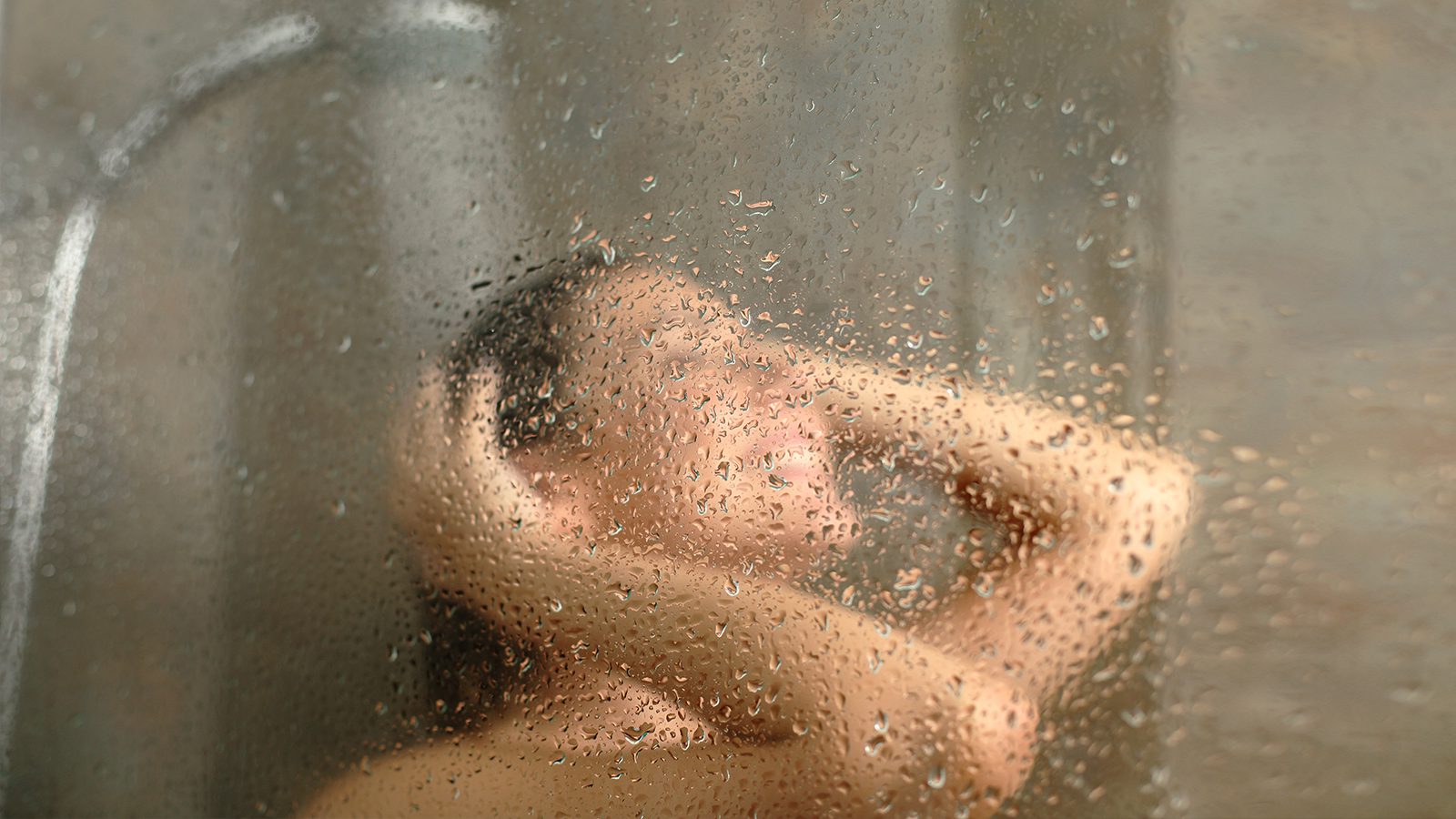There’s nothing more refreshing than a warm shower or luxurious bath. Your body is sparkling clean as all you wash your cares the drain. However, invigorating as it may feel, too much showering may be as problematic as not enough.
Brief History of Personal Hygiene
As human beings evolved, so did their concept of cleanliness. Naturally, people draw to water as a life-giving source. In the beginning, bathing and swimming were more of a pastime for cooling off after a hot day. The earliest humans noticed the calming effects of natural hot springs and showering under waterfalls.
Many ancient cultures created ritual baths for their spiritual traditions because of the connection with water and birth. Bathing and showering took on religious connotations rather than for hygienic reasons. The Ancient Babylonians and Chinese were the first to add essential oils and other perfumes to bathwater.
For these cultures, ritualistic bathing was a feat that could last for hours or even days. Such was usually reserved for royalty and other wealthy families. People filled large tubs with water heated over an open fire.
Water wasn’t always the liquid of choice for ancient bathing. The legendary beauty Cleopatra was noted for her love of luxurious milk baths. Others lavished themselves with aloes and other soothing ointments for their skin.
The Ancient Greeks and Romans made a social artform out of bathing. They constructed stunning public bathhouses where citizens could bathe and socialize. They also took advantage of natural waterfalls and hot springs for a relaxing soak.
From the Middle Ages to the Modern Era, most people had reservations about bathing. Indeed, many physicians warned that bathing was hazardous to people’s health too often. Many folks during these times rarely scrubbed in water more than once a week or so.
When indoor plumbing became more accessible, it was no longer necessary to pack water from wells or creeks. Indoor bathrooms with built-in tubs and hot water eventually changed the social paradigm to make daily bathing acceptable.
As indoor plumbing evolved into an essential part of daily life, the need for reliable maintenance and expert installations became crucial.
What once required effort and planning, like fetching water from wells, is now an expected convenience in every home. To keep these systems running smoothly, partnering with a skilled plumbing company is vital. From ensuring proper water pressure to preventing leaks and clogs, professional plumbers provide the essential services that keep households functioning efficiently.
Not only do plumbing professionals handle day-to-day maintenance, but they also play a pivotal role in upgrades and renovations. Their ability to adapt to modern innovations while maintaining classic plumbing standards makes them an invaluable resource for any homeowner looking to enhance their living space.
To ensure that such modern conveniences continue to function seamlessly, the expertise of a skilled plumbing contractor is indispensable. Here, The Otter Guys excel, offering comprehensive services to maintain and upgrade plumbing systems. Their experience ensures that every installation, from classic bathtubs to sophisticated shower systems, operates flawlessly, preserving the comfort and efficiency of modern indoor plumbing.
In the world of home maintenance, plumbing and drain cleaning are essential services that often go overlooked until an emergency arises. Regular upkeep is crucial for preventing major issues like clogs and backups that can disrupt daily life. Skilled plumbing companies, such as sveagle, offer expertise in drain cleaning, employing advanced techniques and tools to clear blockages and ensure optimal flow. Their services not only help maintain the health of your plumbing system but also extend its lifespan, allowing homeowners to enjoy modern conveniences without interruption.

What Happens When You Bathe or Shower Too Often?
Sure, everyone wants to look, feel, and smell clean every day. With tubs and showers in your home, you have the option to bathe as often as you please. But can washing too often cause problems?
Have you noticed any changes in your skin or hair lately? Maybe you get itchier, and your hair is lackluster. Here are eight things that happen to your body when you shower too much.
1. Red and Irritated Skin
Bathing and showering will clean and hydrate your skin, but you can have too much of a good thing. Too many showers mixed with harsh soaps can irritate. You may notice patches of inflammation on your body that itch and burn.
This condition is a common consequence of showering in scalding hot water. An article published by Baylor College of Medicine warns that overly hot baths and showers can damage your skin. According to the report, it’s incredibly more damaging during the cold winter months.
2. Dry, Flaky Skin Can Come From Showering Too Frequently
As the largest organ in your body, your skin maintains a self-protective layer of natural oils. These oils keep your complexion properly hydrated, smooth, and elastic. They also block harmful bacteria and germs from entering your body.
Daily cleansing removes excess oil and microscopic grime on your skin’s surface. On the other hand, bathing too often can strip away these oils, leaving your complexion dry, flaky, and itchy.
3. Unusually Oily Hair
Likewise, your scalp produces a protective layer of oil to keep your hair silky smooth. Maybe you’re one of the many people who battle excessive oily hair and manage it with specially formulated shampoos. It would stand to reason that the more you washed your hair, the less grease buildup you’d have.
This reasoning isn’t entirely accurate, and excessive showering and bathing can cause the opposite effect. If you remove too much of these healthy oils, your scalp will go into overdrive and make too much oil. The consequences are that your hair may stay oily and cause skin breakouts.
4. Problems with Dry Scalp and Dandruff
Perhaps your scalp doesn’t produce enough oil, and it stays dry and irritated. You may use shampoos that boost hydration and minimize flaky dandruff. It’s learning the delicate balance of cleaning your hair and scalp while not overly drying them.
Excessive bathing and showering will only make your dry scalp worse. Another issue is if you wash your hair too much, you could be using too much shampoo. Instead of hydrating your scalp, the shampoo overdose can make your scalp drier, and you’ll continue to have dandruff.
5. Too-Often Showering Can Cause Chronic Itching
Isn’t it frustrating when you are itching and scratching all the time? Pruritus is the medical term for itching, explains an article published by The National Library of Medicine. According to the report, it can be an allergic or non-allergic reaction caused by many conditions.
Chronic itching can affect your quality of life and make you lose sleep. Too many showers may cause or exacerbate the condition. It’s especially true if you have sensitive skin or other dermatological issues.
6. Your Hair Color Fades Quicker With Frequent Showering
If you color your hair, you know how labor-intensive and expensive the process is. Even if you use hair dye from a department store and do it yourself, you want your money’s worth. Unfortunately, showering too often can fade your hair coloring before it’s time.
For most people, permanent hair dyes last six to eight weeks or about 28 washes. The untreated roots show as your hair grows out, and you need touch-ups. Temporary hair dyes that are so popular now only last about two to three shampoos.
If you shower and wash your hair every day, your hair dye could fade within a month. Not only will you have the cost of extra hair dye, but you’ll be treating your locks more often. That’s not healthy for your hair or your scalp.
7. Fewer Split Ends
Wouldn’t it be splendid if your mane was always shiny and smooth? It just doesn’t work like that in the real world. Caring for your hair requires time, patience, and proper maintenance.
Showering can often sabotage your efforts, and you’ll notice that your lovely locks become a mess. The excess water and shampoo zap away healthy oils and leave your hair looking depleted and dry. Plus, you can develop more split ends and hair breakage.
8. Showering May Upset the Balance of Beneficial Microbes on Your Body
You’d be amazed if you could see the microscopic menagerie that lives on your skin. Most of these minuscule florae and fauna are harmless, and some are even beneficial. Excessive bathing and showering can mess with this delicate balance and contribute to several health issues.
If you scrub with antibacterial soap, you may not be doing yourself any favors. These products will zap the most harmful viruses and bacteria lingering on your body. However, they can also destroy beneficial microbes that protect you, especially when often showering.

Seven Healthy Tips for Bathing or Showering
Here are some tips to help you bathe without stripping your skin of natural oils and causing excessive damage.
1. Use Warm Water When Showering
Hot, steamy showers may feel exhilarating for the moment but can damage your skin in the long run. Instead, bathe or shower in warm water. You’ll get the same effect without stripping your skin and hair of natural oils.
2. Make Showering Quick
Occasional long soaks in the tub are suitable for your body and nerves. However, it’s nothing you want to do every day. When you shower, try not to stay in the water for over 10 minutes.
3. Every Other Day
Some people have medical conditions or occupations that require daily baths or showers. However, you may get it by bathing and washing your hair every other day. Just freshen up a bit at the sink on your off days.
4. Use the Right Type of Soap
Many soaps have harsh detergents and scents that can irritate sensitive skin. Choose a soap that is gentle and contains moisturizers. Don’t use regular soap on your face, but rather a facial soap.
5. Tender Loving Care
Use soft, fluffy, and clean washcloths and towels, and use them gently. Rough scrubbing can damage your skin. Pat your skin dry with a towel instead of rubbing it.
6. Use Moisturizers After Showering
Apply a rich moisturizer as soon as you step out of the tub or shower. It will absorb into your open pores and hydrate your skin. Only use a moisturizer on your face that is formulated for this area.
7. Use Clean Supplies
Loofahs, sponges, and poufs are excellent tools for gently exfoliating your skin during a bath or shower. However, they can harbor bacteria and mildew if they stay damp. Sanitize them in your washer or replace them as needed.
Final Thoughts on the Effects of Showering Too Frequently
You need to keep your body clean for self-respect and optimal health. But bathing and showering too often may have adverse effects on your skin. When you tailor your hygiene to your needs, you’ll maintain a healthy glow and feel good about yourself.



















